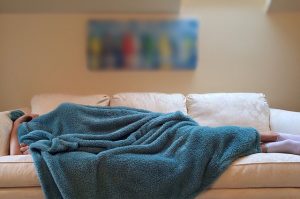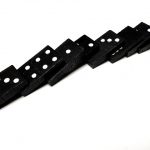Need Work-Life Integration? Try Napping.
 Gone are the days when television stations would play the national anthem and sign off for the night. Coffee was primarily for breakfast and burning the midnight oil. We now live in a culture that never seems to sleep, and when we are tired, we throw coffee at the problem. Coffee shops are ubiquitous and energy products are prominently displayed in the front-ends of many stores (including ones that market toward the health-conscious). No time to get out of your car? Now there’s a drive-through. The technology industry has been gaining a reputation for employees using stimulants like ADHD meds to keep up with productivity. Resting, apparently, is for sissies.
Gone are the days when television stations would play the national anthem and sign off for the night. Coffee was primarily for breakfast and burning the midnight oil. We now live in a culture that never seems to sleep, and when we are tired, we throw coffee at the problem. Coffee shops are ubiquitous and energy products are prominently displayed in the front-ends of many stores (including ones that market toward the health-conscious). No time to get out of your car? Now there’s a drive-through. The technology industry has been gaining a reputation for employees using stimulants like ADHD meds to keep up with productivity. Resting, apparently, is for sissies.
Right? Nope. Because you’re a healthy nurse, you know better.
According to the National Sleep Foundation, an organization dedicated to advocating for improvement in health and well-being through sleep, it is not actually certain whether humans are meant to only sleep at night. Napping is important in many cultures and if given the opportunity, how many of us when not working would take a short snooze when we are tired? However, resting during the workday has long been stigmatized. “Sleeping on the job” could get you fired. In reaction to this hamster-on-the-wheel culture is the trend toward bringing back the nap. For example, companies like Google, PricewaterhouseCoopers, Cisco and Zappos added areas in which employees can take a short power snooze. We’re talking less than one hour.
According to the National Sleep Foundation website, a study at NASA on pilots and astronauts found that a 40-minute nap improved performance by 34% and alertness by 100%.
This summer, give napping a try. Whether it’s an after-lunch siesta on your day off or a 20-minute refresher in your car before heading home from work, experiment with how much time you need to boost alertness and creativity, reduce stress and recharge for the next activity. Keep a journal (on your smartphone, for example) of when you took the nap, how long you slept and whether you felt refreshed or a boost in concentration afterward. Note whether you felt any post-nap grogginess (sleep inertia) and how long it took to subside. Record whether napping had any affect on your ability to sleep at night. You may be able to find just the right nap for your needs.
You can also experiment with different ambient noises to block out the surrounding environment. YouTube provides a variety of sound effects for relaxation, including the sound of rain, the ocean and plain old white noise. You can also try earplugs, a soft sleep mask or a weighted blanket. Happy napping!
Lisa Ertle, B.A. R.N. and the Healthy Nurse, Healthy New Jersey Team
**Win a Fandango movie gift card to help you achieve work-life integration (a.k.a. work-life balance) by sending an email to healthynurse@njsna.org describing how you incorporate the information in this message to become a healthier New Jersey nurse. Two Healthy New Jersey Nurses will win.
**Every time you write to us at healthynurse@njsna.org telling us about your Healthy Nurse journey, you will be entered to win a Healthy Nurse Grand Prize. We love to hear from you, so please keep writing to us!
References:
Napping. (n.d.). Retrieved from https://www.sleepfoundation.org/articles/napping
Schwarz, A. (2015, April 15).
Workers Seeing Productivity in a Pill Are Abusing A.D.H.D. Drugs. Retrieved from https://www.nytimes.com/2015/04/19/us/workers-seeking-productivity-in-a-pill-are-abusing-adhd-drugs.html
Ketchum, D. (2019, February 5). You Can Nap on the Job at These 10 Companies. Retrieved from https://finance.yahoo.com/news/nap-job-10-companies-100300632.html




